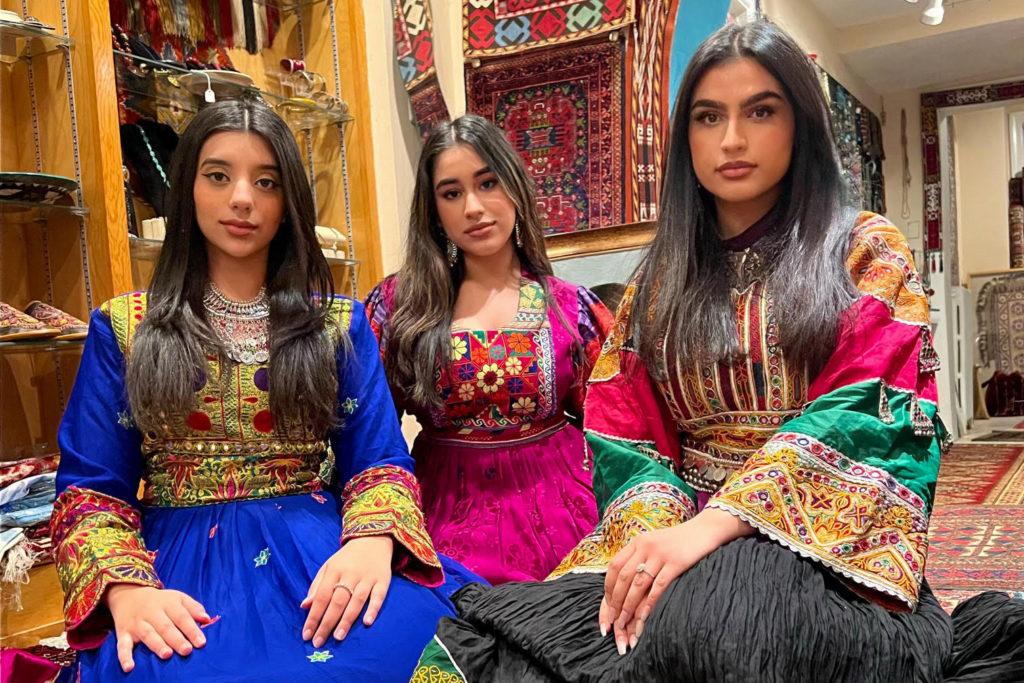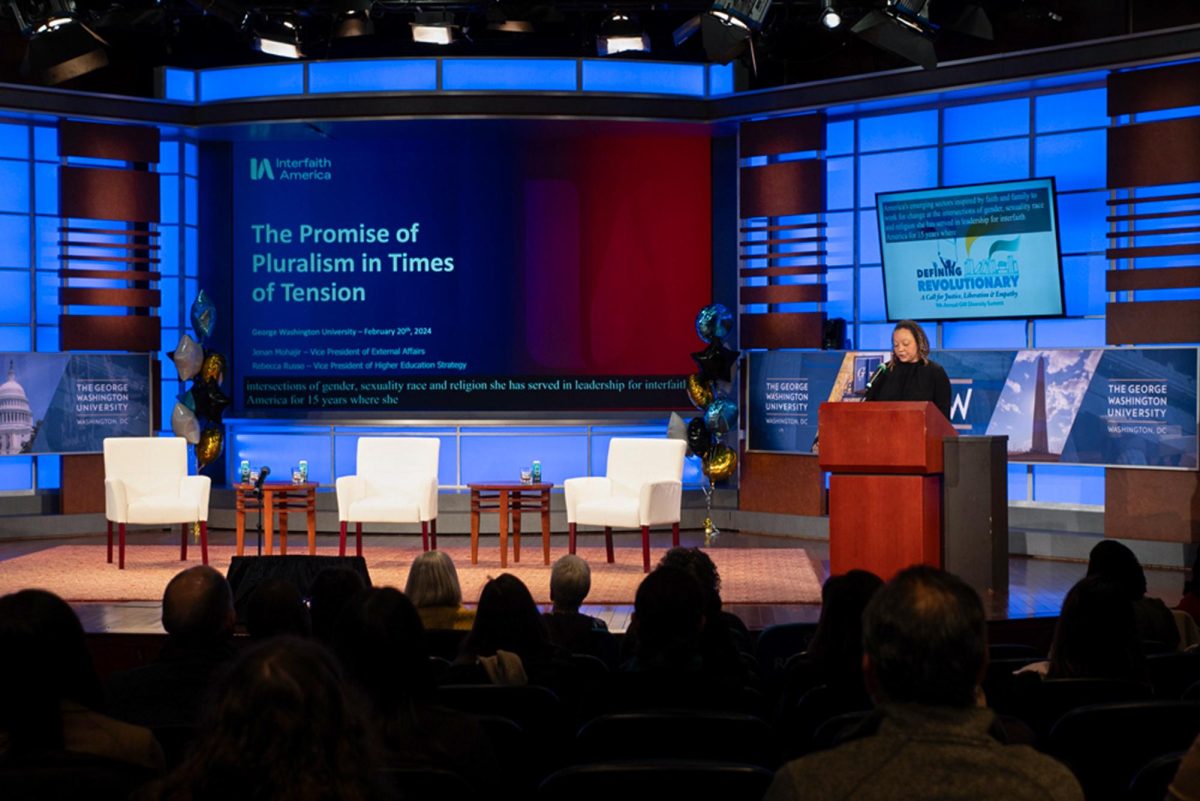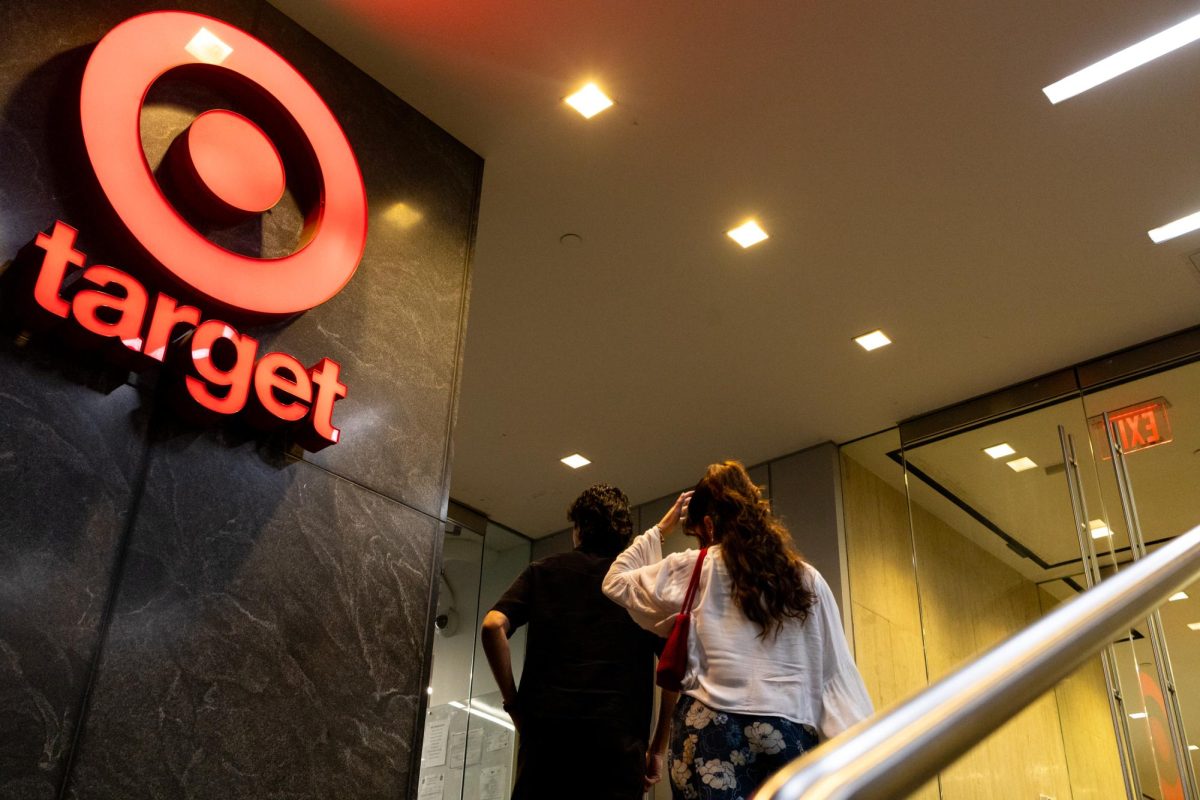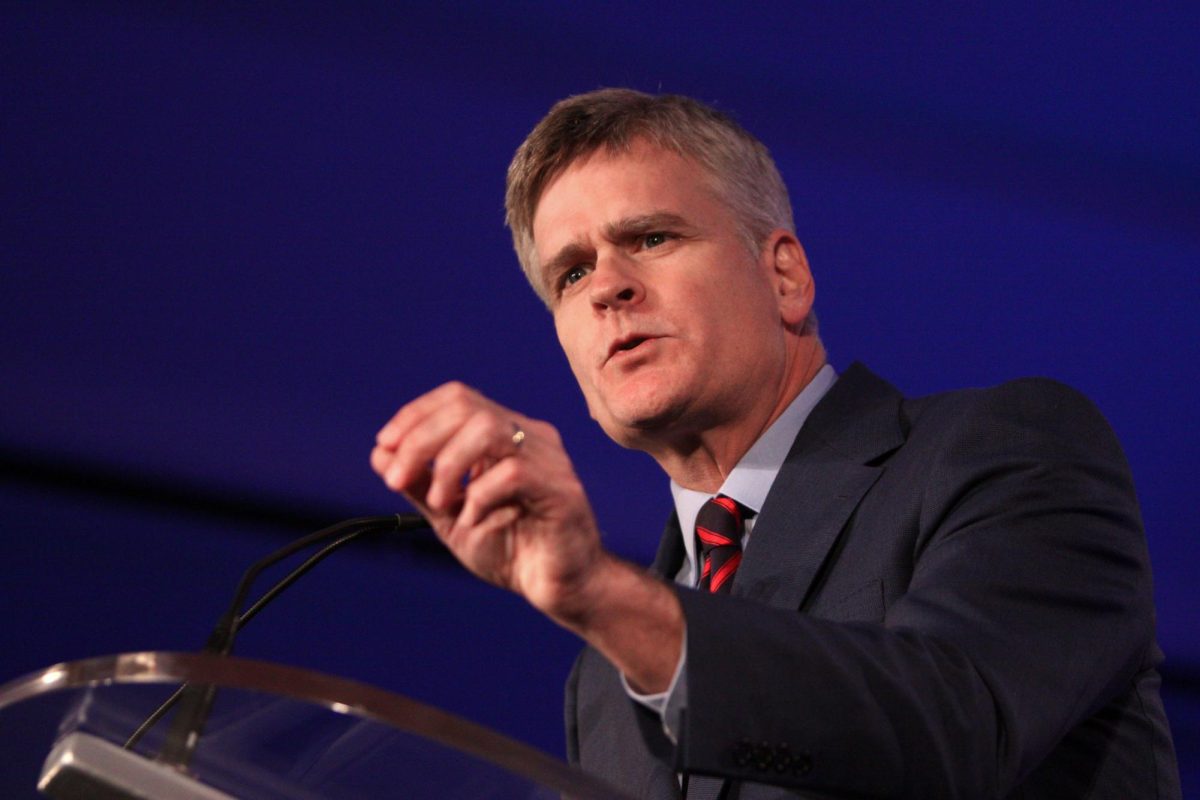Steam from a dish of kabuli pulao, the national Afghan dish consisting of rice with raisins, carrots and meat, wafted through Duquès Hall 451 at the Afghan Student Union’s inaugural interest meeting last Monday.
More than 20 students attended the event virtually and in person, where the three-person executive board discussed plans to spend their first month since registering as a student organization in February partnering with local charity-based nonprofits to fundraise for Afghan refugees in need of financial support. Student leaders said the student union intends to serve as a unifying force among Afghan refugees in D.C., Maryland and Virginia and students on GW’s campus as they develop into an established community presence in Foggy Bottom.
Freshman and co-president Shugoofa Agha said ASU will work to recruit more members this semester by promoting meetings and events through social media and reaching out to friends to expand their executive board. To kick off their launch on campus, members said they plan to incorporate traditions from Ramadan, an Islamic holy month of fasting and reflection observed between March 22 and April 20 this year, into the student organization’s programming for members who celebrate.
Oranus Yaqubi, another co-president and a freshman studying biology, said one of the group’s priorities is to collect donations for Afghan refugees with the help of nonprofits after more than 6,000 Afghan refugees arrived in the DMV area following the Taliban’s 2021 takeover of Afghanistan. The Department of Homeland Security housed refugees for less than a month in Virginia’s National Conference Center in Leesburg while they obtained U.S. work authorizations after evacuating Kabul, Afghanistan’s capital.
Yaqubi said she became interested in donating to Afghan refugees transitioning to life in D.C. after she volunteered at a local refugee camp in Virginia through the Afghanistan Youth Relief Foundation between August and December 2021. She said the camp provided refugees with medical treatment, clothing and essential supplies.
“We’re so far away from their homes and also Afghans in Afghanistan right now who are going through trouble,” she said. “I feel like this organization gives us an opportunity to connect with those people on a bigger level and not just donate as one person but donate as an organization.”
Yaqubi said she wants to host cultural events to get the Afghan community and other interested peers involved in the student organization and expand the events to collaborate with George Mason University’s Afghan Student Union, which hosted a cultural event called Majlesi that featured dancers, henna art and traditional clothing early last month, and bring a similar event to GW.
Yaqubi said she found out about the former Afghan Student Association – a group that was active in advertising educational and philanthropic events since 2011 until their last social media post in 2021 – in 2016 when she saw them host a fundraiser at the Afghan mosque she grew up attending in Alexandria, Virginia. She said she was inspired to work with Agha, her co-president, to form a community after she found out the previous Afghan organization was discontinued.
“I saw it was inactive, and it was something I had in the back of my mind,” she said. “And then when I met Shugoofa before, we kind of talked about it, like, ‘We need to get this done as soon as possible to be able to have our community starting freshman year.’”
Bahar Agha – a member studying nursing as part of a 1.5-year accelerated bachelor’s degree program – said she wants to build relationships with Afghan students at GW through the student union after growing up in Arlington alongside her sister, Shugoofa Agha, with little exposure to fellow Afghans her own age.
“It’s just kind of nice, now being a University student, to be able to connect with other students who are also Afghan, kind of relate to them and share in our struggles,” Agha said.
Sophomore Hajera Hayat, a member of the student organization studying public health, said she heard about the group through a mutual friend and became interested in joining because few people shared her Afghan ethnicity growing up in Fairfax, Virginia. She said she wants to get involved in upcoming events that board members mentioned in the meeting like fundraising for women and children in Afghanistan and conducting language workshops to talk about various languages that address and celebrate the country’s ethnic diversity.
“I’m excited to do it outside of that, especially since the club is just starting but with Ramadan and everything like volunteer opportunities, just being involved, I’m just excited to be here,” Hayat said.
Sear Rassoly, a senior and member of the student organization studying information technology, said he considered starting an Afghan student organization in his first two years at GW but held back because he could not find enough Afghan students on campus to join.
He said he is “proud” of the freshmen for creating this space for Afghan students during their first year at GW.
Rassoly said he hopes the student union will grow to include the many people coming into Virginia from Afghanistan as well as students from broader Asian communities on campus so the GW community becomes more aware of these diasporas.
A total of 11,742 Afghan refugees arrived in Virginia between 2001 and 2021, according to a 2021 U.S. News & World Report analysis. For every 100,000 residents, there were about 136 resettlements – federal approval of refugees’ permanent residence, the analysis shows.
“I have more hope for these people because they just got to GW,” Rassoly said. “If they are able to create this type of event, hopefully they could do something more or organize bigger events and support more Afghan people in Afghanistan and in Virginia or all over the place.”
Rassoly said until the interest meeting, he felt he was “the only Afghan guy at GW” because he had no classmates or peers that shared his Afghan heritage. When he heard students were organizing the new group, he monitored the organization’s progress in excitement.
“I really want this community to grow more, especially these freshmen students,” Rassoly said. “If they have more friends to come over and join them, it’s going to be a good community.”








